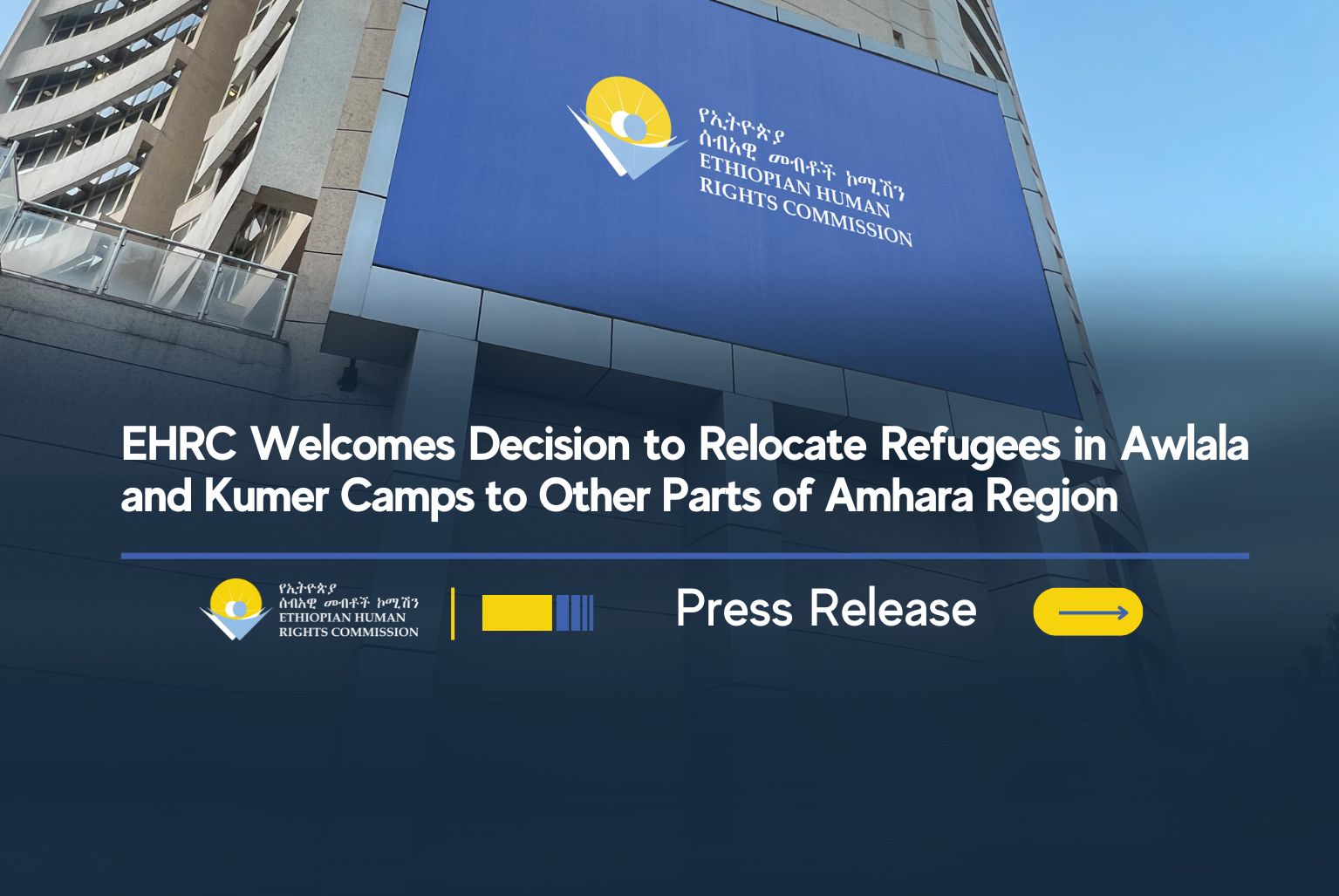Ethiopian Human Rights Commission (EHRC) welcomes measures by the Refugees and Returnees Services (RRS) and United Nations High Commission for Refugees (UNHCR) to relocate refugees in some camps in Amhara region to other relatively safer parts of the region. As part of its refugee human rights situation monitoring work, EHRC has been engaging with the RRS and other relevant actors, in particular on concerning reports of armed assaults or attacks by armed groups, hostage-taking, or kidnapping for ransom targeting refugees and asylum seekers living in the refugee settlements known as Awlala, Kumer and Alemwach in Amhara region. According to UNHCR data, these refugee sites house close to ten thousand refugees, mainly from Sudan and Eritrea. Reports also allege that security concerns and lack of basic humanitarian aid provision forced more than one thousand refugees to flee to relatively safer places.
While acknowledging the safety and security concerns faced by refugees and asylum seekers in the Amhara region, RRS provided details on upcoming measures to address the security concern of the refugees in Awlala and Kumer by relocating them to a new location. RRS also emphasized that shortages in humanitarian aid provision are affecting the safety and security of refugees.
EHRC has been closely monitoring the human rights situation of refugees and asylum seekers across the country. Refugees residing in various camps are affected by inadequate humanitarian assistance, including food, health care, education, shelter, livelihood and other essential services. EHRC similarly found the decline in the provision of essential services is further undermining the safety and security of the refugees in other camps.
Therefore, while welcoming the measures taken in the immediate to relocate refugees in Awlala and Kumer camps to other relatively safer locations, EHRC reiterates its call to the Ethiopian government to strengthen the security in and around refugee camps. EHRC also urges national and international humanitarian actors to scale up their support to fill humanitarian aid provision related gaps and challenges.
